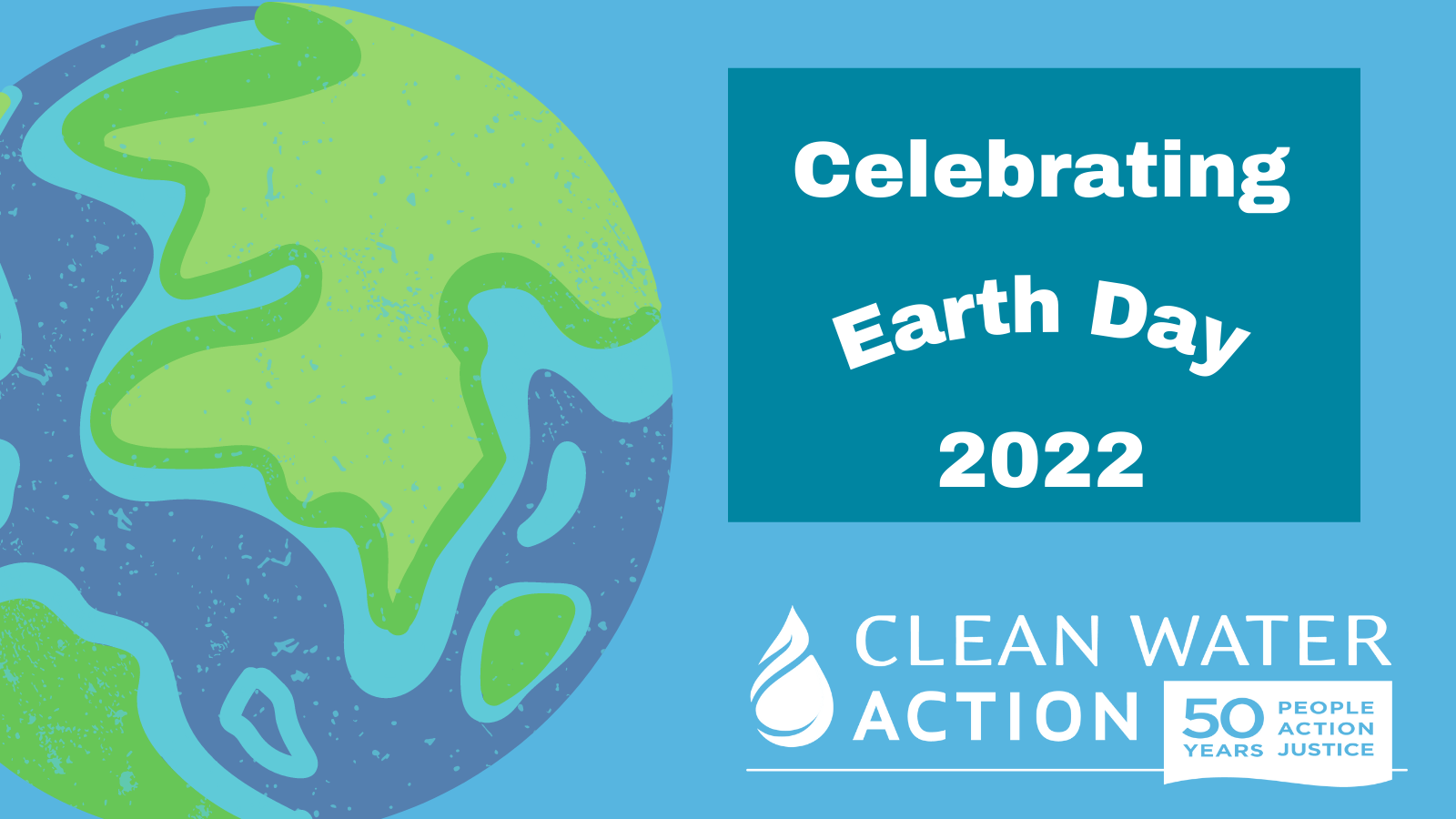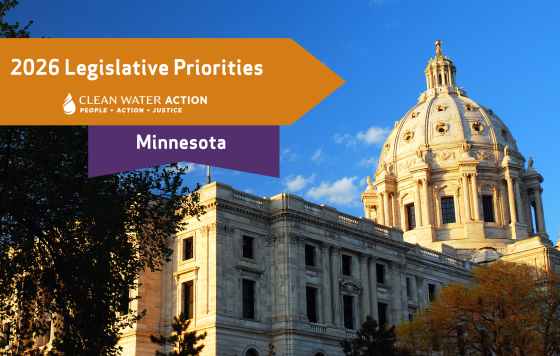
This Earth Day, take a moment to make your voice heard! Earth Day can be overwhelming. There is no shortage of troubling information about increasing climate change, and what that means for our communities and our health. Sometimes it seems like the fate of the environment that sustains us depends on our daily actions and our purchasing choices
But there is also promising progress on many fronts, and public support matters if we are to realize this progress. Clean Water offers many ways for people to take action to support our campaigns. Several of our priorities relate to issues that are on my mind this Earth Day. Please take a moment to weigh in.
1. Putting Drinking Water First:
Our “Putting Drinking Water First” approach is not actually just about drinking water! It’s about focusing on the activities that lead to water pollution and health risks in drinking water and addressing them where the problem starts.
A great example is the use of the notorious and widespread “forever” PFAS chemicals. We are finding them in drinking water around the country, and many water systems will need to treat the water to remove these chemicals, usually passing those costs onto their customers—us.
Why are we still using these chemicals when burdens from their use are landing on us in terms of health risks and our water bills? Bills in the U.S. Congress would get rid of PFAS chemicals in food packaging, a significant use and one we can do without.
Ask your U.S. Senators and Representative to support getting PFAS out of food packaging.
2. We can do something about environmental injustice:
It is well-demonstrated that the burdens of pollution fall more on some people and communities than others. This is not inevitable. It can and must change.
The Biden administration has made significant commitments to addressing the disproportionate impacts of environmental threats on people of color and low-income communities. Some Congressional leaders are stepping up too. The Environmental Justice for All Act envisions a holistic approach to addressing and preventing these harms.
3. Requiring facilities storing toxic chemicals be responsible for preventing hazardous spills into our water:
It seems simple enough. If a facility stores hazardous chemicals that could be released into water bodies, including drinking water sources, during extreme weather events like hurricanes they should plan ahead to prevent these spills. The U.S. Environmental Protection Agency (EPA) has proposed long overdue requirements to protect communities’ water from these kinds of chemical spills.
Thank you for taking action, and let's make Earth Day every day!


